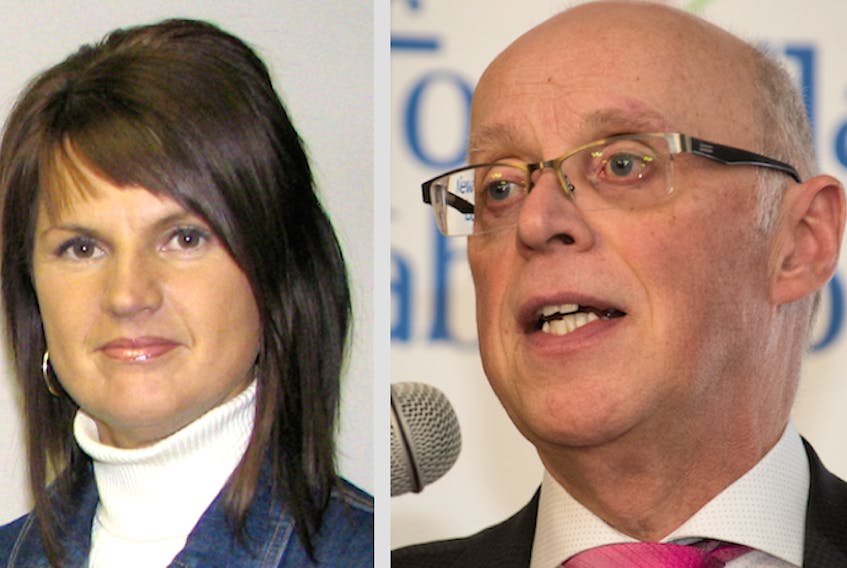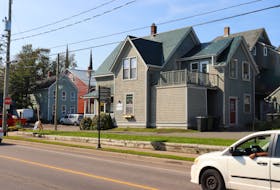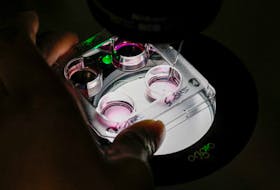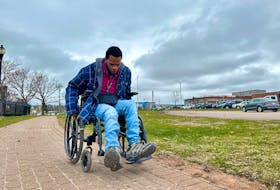MARYSTOWN, N.L.
Ruby Hoskins has been tirelessly advocating for a mental health and addictions treatment facility for the Burin Peninsula for the last 11 years.
The need for a dedicated facility in the region has only continued to grow in that time, she says.
However, despite her efforts, and countless conversations with people in power, there is still no such facility for the region.
“I keep advocating for it, but it’s just the same thing – further review and consultation,” the Marystown resident told The Southern Gazette.
“It’s always, ‘Well, we’ve done this and we’ve done x, y and z, so basically you should be happy with that,’ but you can’t be happy when what we really need is not here.”
Hoskins has a vision of what a mental health and addictions facility on the Burin Peninsula would look like.
“We’re not asking for a 20- to 25-bed facility; even a five- to maybe eight-person facility (would do),” she says.
It would be a dual-diagnosis centre for both mental health and addictions, as separating the two can be difficult, she says, with a full continuum of care – detox, residential treatment, supports for families as well as after-treatment programming.
She even has a place in mind — the former T.J. McDonald residential youth group home building in Burin.
“Until we’ve got (the full range of care), we’re never going to have the impact that we want to have on reducing the mental health and addictions issues,” says Hoskins, who is the founder of Stand Against Drugs on the Burin Peninsula.
Need not identified: Haggie
From the provincial government’s point-of-view, the Burin Peninsula “has been a star as far as mental health and addictions is concerned,” Health and Community Services Minister John Haggie told The Southern Gazette in a telephone interview Oct. 9.
Haggie says the province’s Towards Recovery initiative has been implemented successfully in the region. According to Haggie, that initiative has completely eliminated the wait time for people looking to speak with someone about mental health and addiction issues, chiefly through walk-in clinics.
“We’re looking at a whole kind of integrated system, starting with low-barrier, easy-access based in your own community, and working up the steps … if you need it,” he says.
“We’ve actually sent staff from Labrador and from other health authorities down to the Burin Peninsula to see how it’s been done so we can clone it across the province.”
Haggie says a mechanism is in place for health providers in the region to report issues and concerns.
The need for a mental health and addictions facility in the area has not been conveyed to the department, he says.
“At the moment, that hasn’t been something that’s been brought to our attention,” he said.
Yet Hoskins says she has spoken to Haggie on several occasions in the last year, always driving home the need for a facility in the region. She also brought it up to Placentia West-Bellevue MHA Mark Browne a few weeks ago, pointing out to him an election is on the horizon, she said.
The provincial government has taken a big step forward with the recent introduction of walk-in mental health and addictions clinics on the Burin Peninsula, Hoskins acknowledges.
However, she said it was more of a reactionary move, prompted by a spike in the number of suicides in the region. She says government must be proactive.
Despite the fact new treatment facilities have been opened in the province, there are still significant wait times, according to Hoskins.
That’s a big concern, she says. Someone willing to accept treatment needs to go into a facility right away, she says, adding any number of issues can arise during the wait.
“The long-term issues, we’re not even starting to scrape the surface with just the walk-in clinics,” Hoskins says.
By the numbers
- 20,040
The Burin Peninsula’s population in 2016, according to the Newfoundland and Labrador Statistics Agency
- 275.3
The number of kilometres from Marystown to Harbour Grace, location of the nearest live-in addiction treatment centre for adults, the Grace Centre.
- 6.5
The number of staff Eastern Health says it has who provide mental health and addictions counselling services on the Burin Peninsula. According to the health authority, a mental health nurse and a youth outreach worker also provide mental health and addictions support to the area’s residents.
Treatment centres in Newfoundland
The Recovery Centre
The Recovery Centre is open to anyone in the province who is over the age of 16 and needs help while withdrawing from alcohol, drugs and/or gambling. It is based in St. John’s.
Humberwood Treatment Centre
The Humberwood Treatment Centre is a live-in, non-medical facility for residents of Newfoundland and Labrador over the age of 19. It helps people with drug, alcohol and/or gambling issues. It is located in Corner Brook.
The Grace Centre
The Grace Centre is a live-in addiction treatment centre in Harbour Grace for residents of Newfoundland and Labrador over the age of 18. It assists people with drug and/or alcohol concerns.
Tuckamore Youth Treatment Centre
The Tuckamore Youth Treatment Centre is a live-in facility for youth ages 12-18 in Newfoundland and Labrador who have complex mental health concerns. It is located in Paradise.
Hope Valley Treatment Centre
Hope Valley is a live-in treatment facility for 12-18 year olds in the province who are concerned about their drug or alcohol use. It is located in Grand Falls-Windsor.
Source: Western Health









